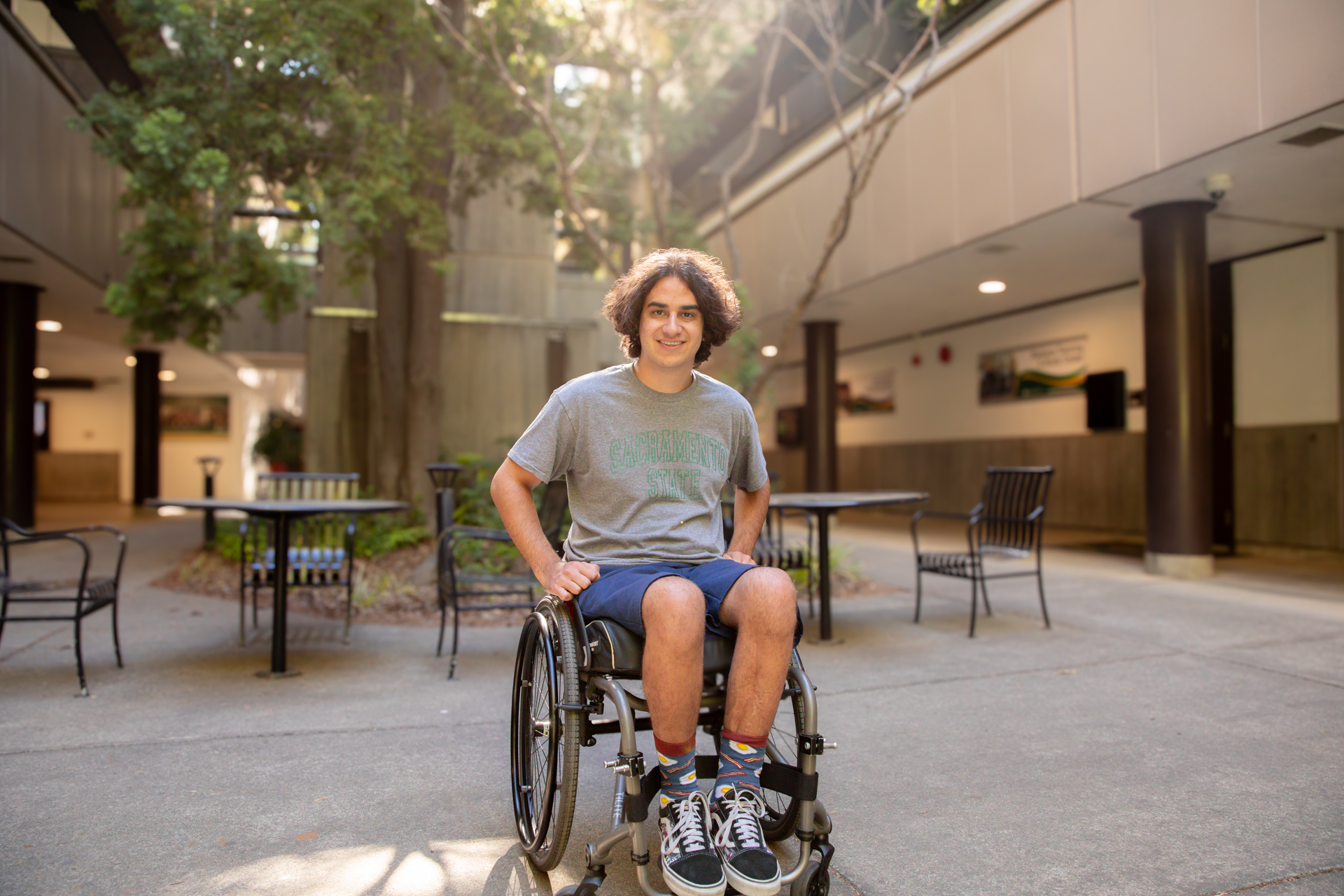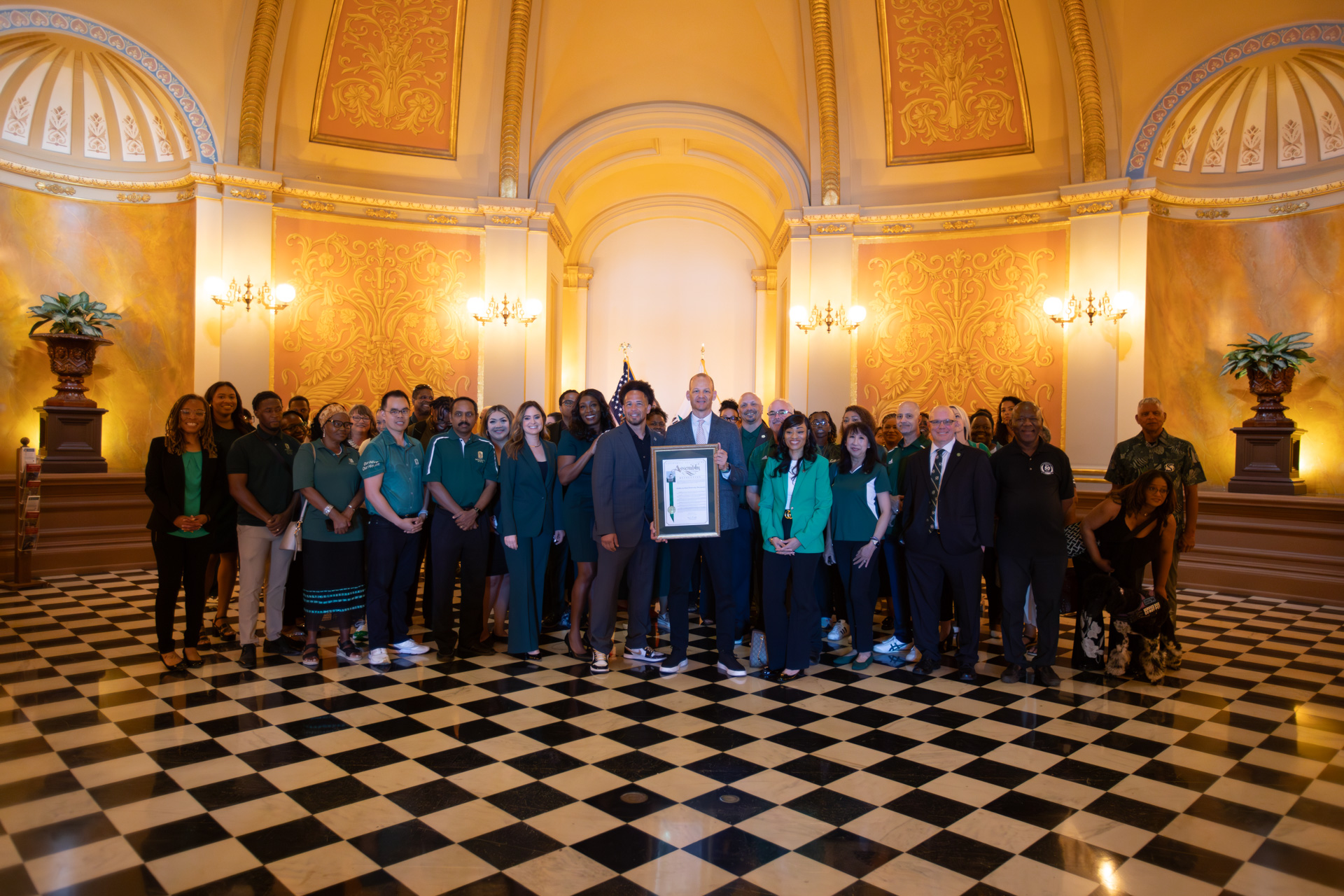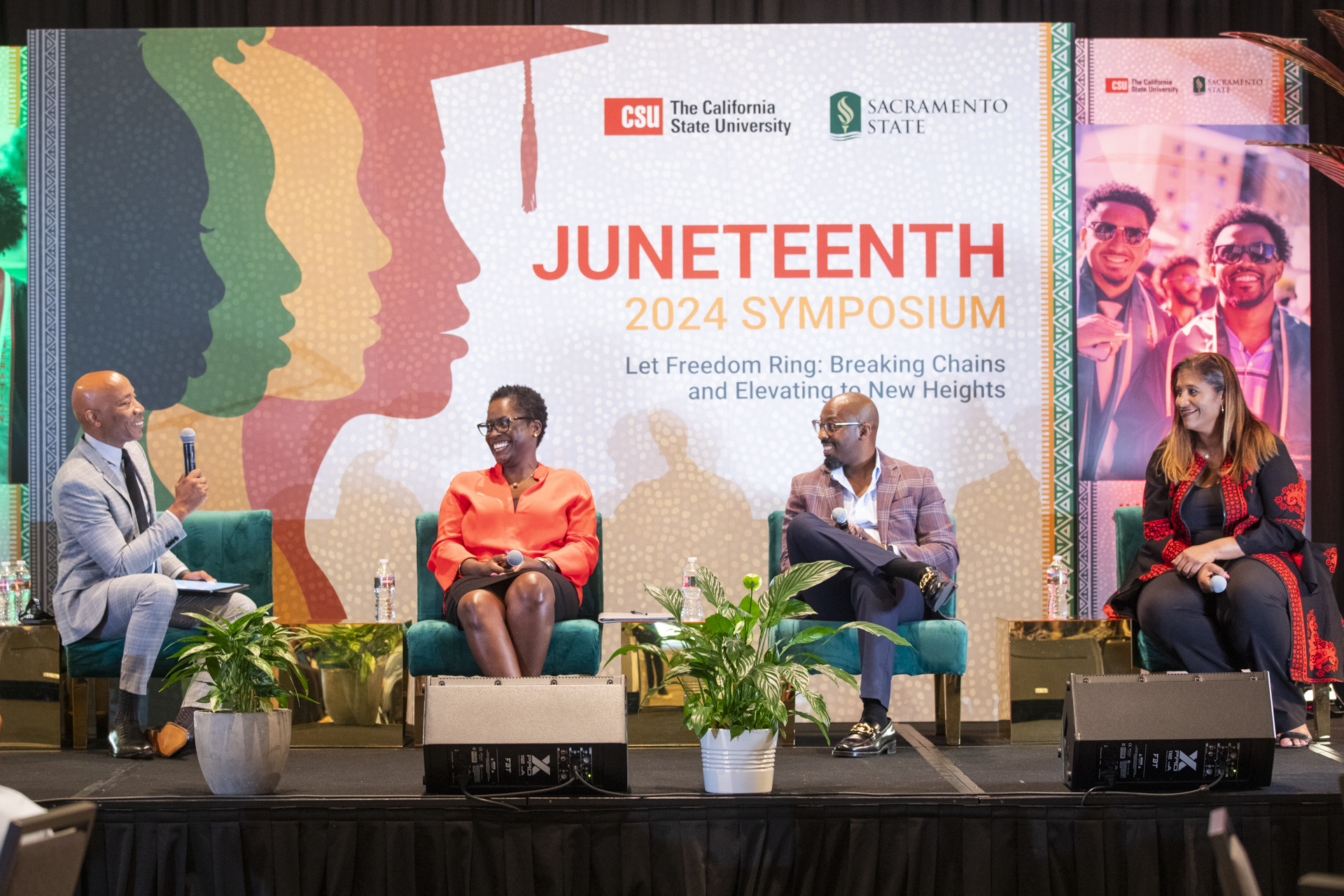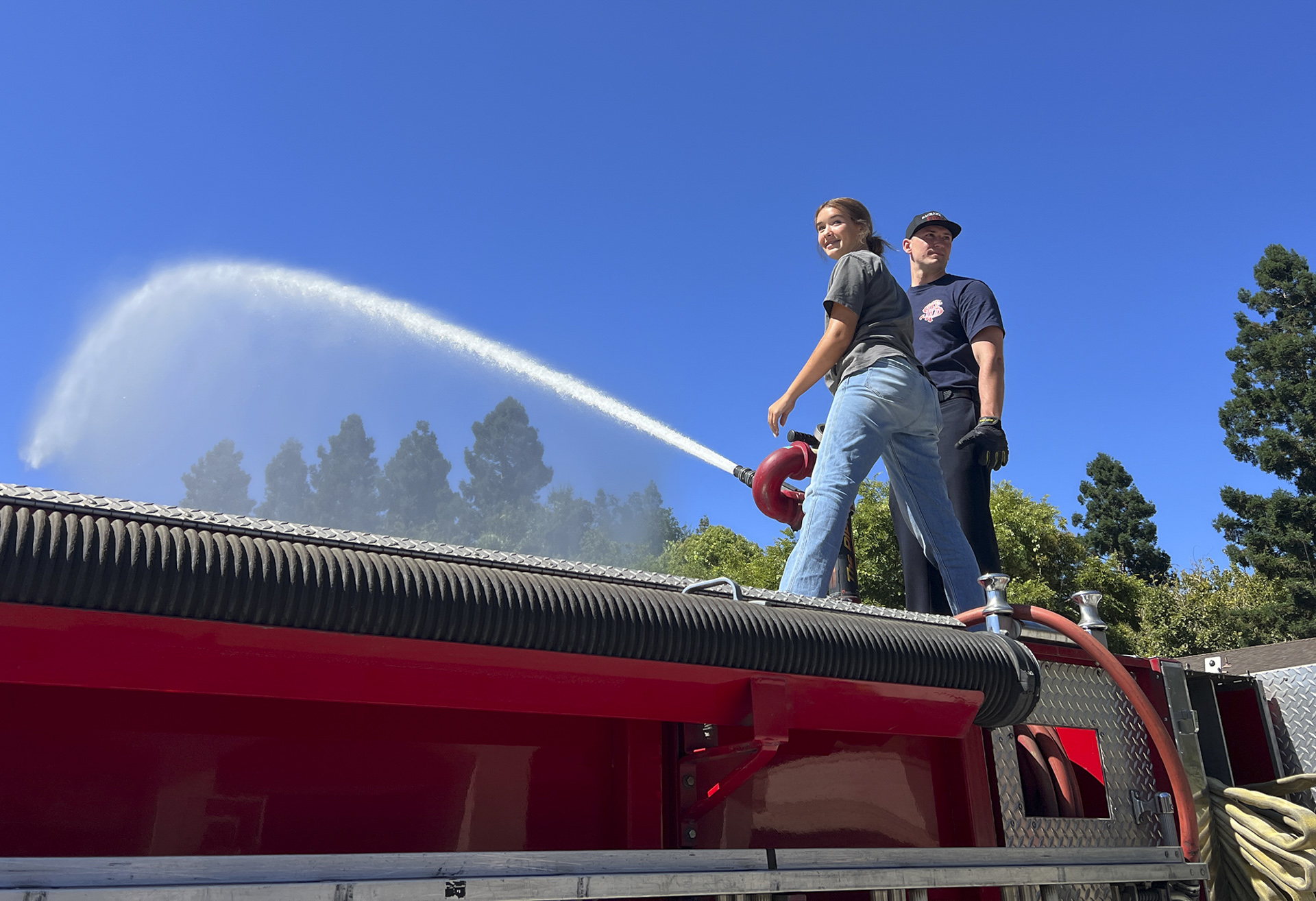Story Content
Sac State marketing student paralyzed at 15 is again finding joy in athletics

June 21, 2024
The first time Bassem Mansour returned to the snow-covered slopes after a devastating injury left him paralyzed from the chest down, an adaptive ski instructor took him to the top of the mountain.
“He said, ‘This is what you can do again.’ In that moment, I knew I had to do it,” said Mansour, a second-year Marketing major at Sacramento State. “I wasn’t scared at all. I was like, ‘Get me to the top. Let’s go.’ ”
In the four years since his injury, Mansour relearned how to ski in snow and on water with the help of Achieve Tahoe, a nonprofit organization that provides affordable adaptive recreation experiences for people with cognitive, sensory and physical disabilities.
“The experience of learning to do something you didn’t think you could do opens up ideas of what else you might be able to do.” -- Marina Gardiner, Achieve Tahoe Guest Services director
Achieve Tahoe recently gifted Mansour with a custom-fit, sit-down water ski funded by a grant from The Hartford and Move United Sport.
“The experience of learning to do something you didn’t think you could do opens up ideas of what else you might be able to do,” said Marina Gardiner, Achieve Tahoe Guest Services director.
“As much as recreation is considered a luxury, it’s an important part of people’s lives, and achieving something that is highly challenging can show you other things you assumed you weren’t capable of.”
Mansour was a 15-year-old sophomore at Jesuit High School who dreamed of being a commercial airline pilot when a truck hauling a boat struck him on his bike.
“I got dragged for 40 feet and broke 14 bones, including both my tibia and fibula in the left leg,” Mansour said. Six vertebrae in his neck and back were fractured.
“It’s pretty blindsiding and devastating,” he said. “I was scared of what my life was going to look like. How was I going to move around and interact with people? A lot of times, when you’re a little kid and you see someone in a wheelchair, your parents say, ‘Don’t stare.’
“When it happened to me, I was scared to go outside. I did not want people seeing me in a wheelchair.”
It was October 2020, and the world was in a global pandemic, making it easier for him to hide. But eventually, his mother started taking him out, and his friends encouraged him to hang out with them.
His high school had switched to hybrid learning, and by the end of his sophomore year Mansour was back on campus, figuring out how to negotiate school in his wheelchair.
“It took me a year to grapple with it, and after two years, I was like, ‘This isn’t fun, but I can move on and make it work,’ ” he said.
Achieve Tahoe played a big role in helping Mansour come to terms with his new future.
Mansour, 19, was an avid snow skier ever since his mom got him on the slopes when he was 3 years old, even competing in races until he was about 12. Except for wakeboarding, he was more comfortable in the snow than in the water.
About a year after his injury, Mansour found himself on top of a mountain with an Achieve Tahoe instructor.
“The first thing they asked me was ‘What are your goals?’ It was something I’d never been asked before, at least not from a sports standpoint. I knew I wanted to be able to do this stuff again,” Mansour said. “They were like, ‘Cool. Get in.’ ”
Mansour, who grew up in El Dorado Hills, chose Sac State because of The WELL and the adaptive sports programs. He could live on campus and be independent, but was still close to home in case he needed additional care.
"Now, it feels amazing to be out on the water. It’s freedom for me." -- Bassem Mansour
He also started playing for Sac State’s club tennis team, along with another paraplegic student.
“It’s just a beautiful opportunity for inclusion and breaking down barriers for students who are marginalized and don’t have as many opportunities on campus as others do,” said Marty Anderson, a professional wheelchair tennis player who volunteered to coach Mansour and the other student.
“Bass has shown tremendous strides. I can see him progressing quickly into a good tennis player.”
Achieve Tahoe received a $50,000 Hartford grant to purchase equipment and expand their adaptive recreation programs. Part of the grant included selecting one athlete to receive their own custom equipment.
Gardiner said the cost of adaptive equipment starts at $3,000 and can reach as much as $20,000.
“The cost is a huge hurdle even for people like Bass, who has a lot of family support,” Gardiner said. “It’s a barrier for so many people who want to participate in different sports and be fully independent and do these things on their own.”
Mansour said the water ski gives peace to his 15-year-old self.
“Because at first, I thought, how can I do anything? Are my friends still going to want to hang out with me?” he said.
“Now, it feels amazing to be out on the water. It’s freedom for me. I can go out with my friends, who have wakeboards and tubes, and just throw in my water ski and do stuff with them. I can even show off a little bit.”
Media Resources
Faculty/Staff Resources
Looking for a Faculty Expert?
Contact University Communications
(916) 217-8366
communications@csus.edu


